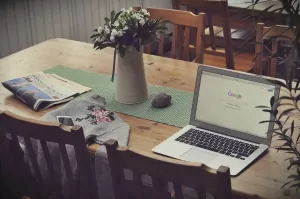10 Words You Should Not Use at a Job Interview
Everyone has advice on how to dress and how to act during a job interview, but people often have little advice regarding what you should say. They will give you vague ideas, like “be positive,” but they never seem to have any specific advice. Here 10 most common words to avoid during any job interview.
1 Like
Don’t like, use like, the word like too much. It makes you sound uneducated and childish. Unless the person who is interviewing you uses the word “like” a lot, avoid it. Many people find the excessive use of “like” to be annoying and will probably write you off the first time you do it, even if you have a killer resume.
2 Try
As the saying goes, “Do, or do not; there is no try.” Using the word “try” in an interview makes you sound non-committal and incapable. You want to talk about what you will do in order to achieve success and what you have done in the past. Your future employer wants to hear about what you do and how you do it, not about how much you might try to do something.
3 Perfectionist
There is nothing appealing about a perfectionist. They are picky, delay projects, and do not know how to strike a balance between limited resources and the demands of a job. Listing this as a weakness is also a recipe for disaster. Everyone knows that this is the default answer when asked what your weaknesses are, so do not go down that road.
4 Irregardless
Is “irregardless” a word? Some people say yes and some say no. Whatever your stance on the authenticity of “irregardless” as a word, just avoid it. It is confusing at best and drives certain people nuts. The word is completely meaningless because saying “regardless” is just as good and does not make people cringe.
5 Cursing
This should go without saying, but cursing during an interview is a massive problem. Even if your future employer curses like a sailor, they will not fault you for failing to curse. Do not even use substitutes for cursing like “freaking” or “heck.” They suggest you have anger management issues and create a hostile tone in the interview, even if that is not your intention.
6 No
Avoiding the use of the word “no” is a kind of psychological trick. Studies show that using the word no can subtly affect a person’s mood, leading them to be more closed off to new ideas and less receptive to the things you say. You are setting yourself up for rejection if you say “no.” Try to use positive or affirmative words to express yourself.
7 Um
Saying “um” indicates that you are lost, do not have a response, or do not know what you are talking about. Some people even think that it is indicative of lying. Avoid the use of the word “um” as well as other fillers like “ah” and “well.” Just be silent for a moment instead of filling the void with a word like “um.”
8 Basically
Basically is just another filler. It does not really mean that much and is often used as a way of saying “this is complex, so I will break it down.” Do you want your future employer to think you are talking down to him or her? Avoid the use of “basically” to make your speech more succinct and more respectful.
9 Whatever
Using dismissive words, like “whatever,” can send the message that you do not really care about the interview. Some people use this word all of the time, so they have to work hard to correct their speech. Try to replace the word “whatever” with more meaningful expressions of why you don’t feel concerned about the issue you are discussing.
10 Hate
Hate is a strong word that projects very negative feelings. Avoid using the word hate so that people do not start to think that you are inflexible and hard to work with. Words like “hate” are used to express personal feelings and not objective thoughts. Employers are interested in your thoughts, not your emotions.
A job interview should be a civil affair. You want your employer to get a sense of how you would act, on a daily basis, around the office. Do not give them the impression that you would be a vapid, angry employee by using the words above. Be concise and polite in all of your speech to project the best possible image of yourself.





